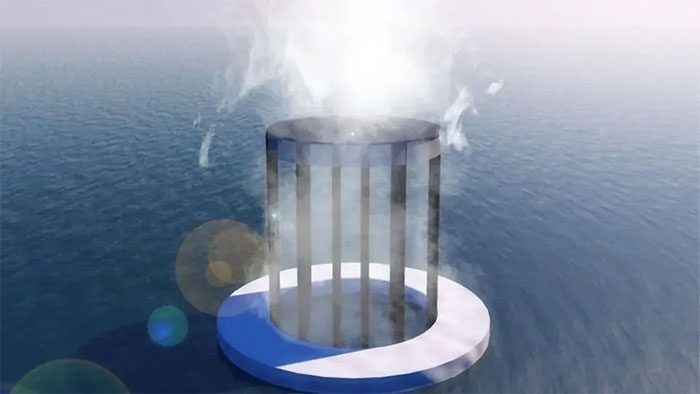The solar-powered autonomous system could help address the increasing freshwater scarcity worldwide.
Australian researchers have designed a floating farm at sea capable of producing freshwater for drinking and agriculture.

Sea water evaporation and recycling system to freshwater – (Photo: unisa.edu.au).
In a study published on September 11, the research team from the Future Industries Institute at the University of South Australia (UniSA) stated that the solar-powered autonomous system could help tackle the growing issue of freshwater scarcity globally.
This system evaporates seawater and recycles it into freshwater through two chambers; an upper chamber resembling a greenhouse and a lower chamber for collecting water, which is then condensed and transferred to the plant growth chamber.
In a field trial, researchers successfully used the farm to grow broccoli, lettuce, and bok choy on seawater without the need for additional irrigation.
In a press release, researcher Haolan Xu noted that this system has several advantages over other solar floating farm designs. He explained that other designs install evaporators inside the plant growth chamber, taking up valuable space that could be used for crops. Additionally, these systems are prone to overheating, which can harm the plants.
He emphasized: “In our design, the vertical arrangement of the evaporator and growth chamber helps reduce the overall footprint of the equipment, maximizing the food production area. The system is fully automated, cost-effective, and very easy to operate, using only solar energy and seawater to produce clean water and cultivate crops.”
On his part, researcher Gary Owens mentioned that the next step is to scale up the design. He shared that in the future, people might see farms with “floating” ecosystems on the ocean or multiple smaller models deployed across a vast sea area.


















































